Iran To Reward Salman Rushdie Attacker With Farmland

The Islamic Republic says it will grant 1,000 square meters of farmland to the assailant who stabbed Salman Rushdie, the British author of The Satanic Verses.

The Islamic Republic says it will grant 1,000 square meters of farmland to the assailant who stabbed Salman Rushdie, the British author of The Satanic Verses.
Mohammad Ismail Zarei, head of the Secretariat to Implement Khomeini's Fatwa on Execution of Salman Rushdie said Monday that “We sincerely thank the young American for his brave action in carrying out the historic fatwa of Imam Khomeini.”
Rushdie was stabbed in the neck and torso on stage at a lecture in New York State by Hadi Matar, a 24-year-old man in August 2022. He lost on eye and movement in his hand after a lengthy medical treatment.
“With this action, he blinded Salman Rushdie in one eye and disabled his arm to make Muslims happy,” he added.
“Although Salman Rushdie is nothing more than a walking dead, in order to honor this brave action, about a thousand square meters of a valuable and fertile agricultural land will be awarded to the stabber or his legal representative in a special ceremony.”
He went on to say that the remaining part of the land will be given to those who kill Salman Rushdie.
Rushdie lived with a bounty on his head since "The Satanic Verses" published in 1988 prompted Khomeini to issue a fatwa urging Muslims to kill him.
Many accused the Islamic Republic of having ties with the attacker, but Iran’s foreign ministry denied any links with the 24-year-old stabber. However, some hardliners and regime insiders expressed gratification after the attack.
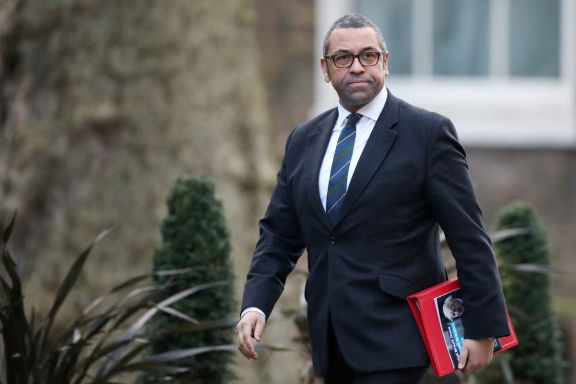
The British government summoned Iran's most senior diplomat in London on Monday to protest at what it said were serious threats against journalists living in Britain.
On Saturday, Iran International TV, a London-based television station, announced it was moving its live broadcasting studios to the United States following threats it faced in Britain.
"I am appalled by the Iranian regime’s continuing threats to the lives of UK-based journalists and have today summoned its representative to make clear this will not be tolerated," Foreign Secretary James Cleverly said in a statement.
The ministry said the Iranian Charge d’Affaires had been told in a meeting with British officials that Britain would not accept such threats to life and media freedom.
Threats linked to the Islamic Republic against the network’s journalists first surfaced in November, when the Metropolitan Police warned the management of direct dangers to some individuals.
Earlier, the head of Counter Terrorism Policing (CTP), Assistant Commissioner Matt Jukes in London had confirmed that they will continue to work closely with intelligence partners and others to investigate potential threats projected from Iran against a number of UK-based individuals, support those affected and put in place measures to keep them safe, including protective security measures such as an overt armed policing presence focused around the west London offices of the Persian-language media company.
Separately, the government-imposed sanctions on three Iranian judges, three members of Iran's Islamic Revolutionary Guard Corps and two regional governors over what it said were human rights violations.
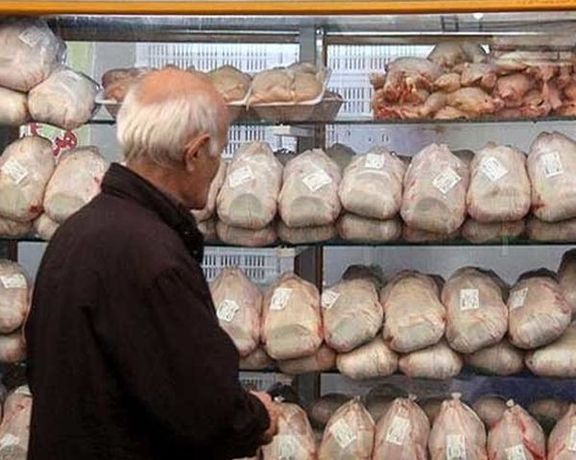
Iran has suspended a newspaper for publishing "false content" after the paper recently criticized the country's economic policies and the morality police.
IRNA state news agency reported Monday that "The Press Supervisory Board banned Sazandegi newspaper," determining that the daily had committed "violations" including publishing "false content" and "disturbing public opinion".
Faraz Internet Daily wrote in a tweet that Sazandegi has been banned because of the choice of a headline referring to the increase in meat prices.
The ban comes as Iran’s currency is falling to new lows almost daily, signaling more inflation. This can exacerbate a wave of protests that broke out in mid-September over the death in custody of 22-year-old Mahsa Amini for ‘improper hijab’.
Sazandegi was first published in 2018.It is the press arm of the centrist Executives of Construction of Iran Party and operates under the financial support of this reformist party.
The Executives of Construction of Iran Party was founded by 16 members of the cabinet of the then President Akbar Hashemi Rafsanjani in 1996.
During the presidency of Hassan Rouhani, Sazandegi was one of the supporters of his administration playing the same role as Kayhan or Fars news agencies play in defending Supreme Leader Ali Khamenei.
In November 2021, Mohammad Quochani resigned as the editor in chief of Sazandegi and the paper’s publication was halted for two months. However, it resumed work under Akbar Motajebi later.
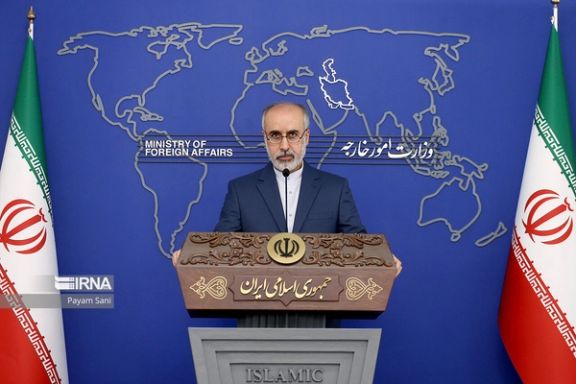
Iran's foreign ministry briefing on Monday was marked by a barrage of irate remarks about opposition figures having been invited to the Munich Security Conference.
Foreign Ministry spokesman Nasser Kanaani said during his weekly briefing that the organizers of the 2023 Munich Security Conference promoted war instead of security by inviting prominent dissident figures instead of the regime officials, who were usually present at the prestigious event.
Calling the move “a grave mistake” that “damaged the conference’s credibility,” he said they sought unilateralism in the international order by preventing the expression of different views. “We believe that this year, the conference was organized in the name of security, but for the sake of war and warmongers,” he added.
“The conference was held in the name of security, but it did not invite important countries such as the Islamic Republic [of Iran] and Russia. It means that the conference has given the opportunity, which could be used to raise different multilateral views regarding international order and security, to parties and currents that sought to consolidate unilateralism in the international arena.”
While the Iranian regime has become increasingly isolated, Kanaani claimed that “The Islamic Republic is one of the most important countries with an undisputed role in deepening and consolidating regional security, and it is among effective countries that helps reinforce international security.”
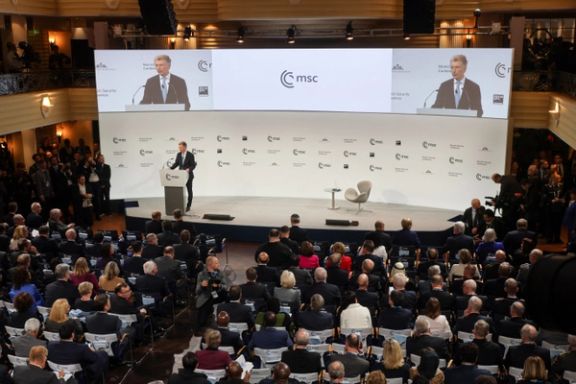
Western countries have strongly rebuked Tehran for its bloody crackdown over protests, its military support for Russia’s invasion of Ukraine and lack of compromise over its highly disputed nuclear program.
As Kanaani was speaking to reporters in Tehran, a large number of Iranians gathered outside the European parliament in the Belgian capital Brussels to call on the European Union countries to designate the Revolutionary Guard (IRGC) as a terrorist organization.
Thousands of Iranians from all over Europe held a massive rally in Strasbourg in January for the same purpose.
After a historic forum in Washington earlier this month by eight prominent dissident activists, they have been traveling to events around the world to make the voice of the Iranian opposition heard. Such events signal the emergence of a leadership council in the diaspora to campaign for international support in favor of Iran’s protest movement.
Elsewhere in his remarks, Kanaani said Tehran is committed to technical cooperation with the International Atomic Energy Agency (IAEA), noting that “The Islamic Republic’s technical cooperation with the IAEA is an important principle for our country. In turn, we expect the agency to behave professionally toward Iran’s peaceful nuclear activities and adhere to the principles and frameworks of professional and specialized cooperation with member states, including the Islamic Republic."
He was referring to a report on Sunday in which Bloomberg News quoted senior diplomats as saying that the UN watchdog, the IAEA had recently detected uranium enriched to 84 percent while monitoring Iran’s nuclear facilities. Iran has been enriching uranium to up to 60 percent purity since April 2021. Three months ago, it started enriching to that level at a second site, Fordow, which is dug into a mountain. Weapons grade is around 90%.
“Raising such issues through the media, while they should normally be discussed in technical and specialized contacts and in bilateral meetings, shows that the agency is distancing from its professional behavior and specialized position,” Kanaani said.
The spokesman for the Atomic Energy Organization of Iran (AEOI) Behrouz Kamalvandi has rejected the report, saying the country’s nuclear facilities have never enriched uranium above 60 percent.
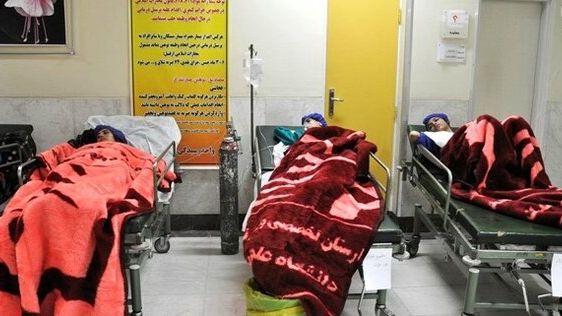
Iran’s attorney general says the poisoning of students in the religious city of Qom might be a “deliberate criminal act”, urging city officials to take a decisive action in the case.
Mohammad Javad Montazeri said in a letter to Qom prosecutor Monday that “the issue should be followed up with more attentiveness, speed and precision”.
He also asked the prosecutor of Qom to report the result if anyone has "delinquency or fault" in this matter or if "there was a plot".
Students at all-girl schools have been falling ill with symptoms of poisoning in the past few weeks. Some began to suspect foul play by religious extremists, who are opposed to education for girls.
Qom University of Medical Sciences announced Sunday that 11 students from one of the schools in this city were once again taken to the hospital with symptoms of poisoning.
Victims have reported symptoms such as nausea, headaches, coughing, difficulty breathing, heart palpitations, and lethargy since November 30.
The education department had to close all schools in Qom for two days after several other schools were affected, causing a public scare.
On February 14, the families of the students who were poisoned while in school rallied outside the Governor's office.
Mohammad Saeedi, Supreme Leader Khamenei's representative in Qom province, had earlier claimed that “Enemy media are spreading rumors about these incidents.”
So far, authorities have not found the cause of the mysterious illness. Some of the victims have reported falling ill after an aroma, resembling tangerines, filled the air in the classrooms.
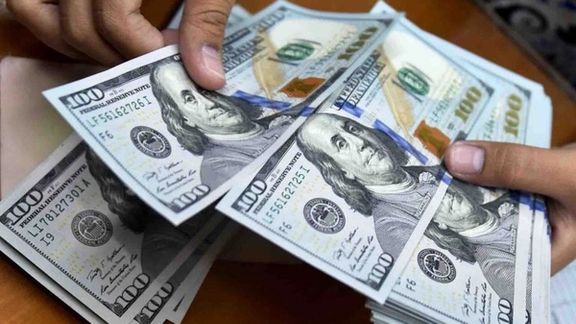
Iran’s rial fell to a new low Monday, breaking a crucial threshold despite repeated government promises of “soon” strengthening the battered national currency.
The rail fell to more than 500,000 against the US dollar from 460,000 only a week ago and 300,000 in late August. Parallel markets including gold, gold bullions, and even vehicles, both domestically produced and foreign made, will immediately reflect the change with higher prices. Essential food items, such as red meat, have already risen to unprecedented highs, making them unaffordable to the majority of people.
The British pound climbed to 600,000 rials and the euro was trading at around 535,000.
Many businesses, such as car dealerships, have already stopped trading while the general population tries to best preserve the value of their savings by making small investments in such commodities.
Further depreciation of the rial in the coming year, many say, would be certain if the situation is not somehow remedied. In a speech Saturday at the residence of Supreme Leader Ali Khamenei to civil and military officials and foreign ambassadors, President Ebrahim Raisi once again promised to bring inflation and the fall in the value of the national currency under control but failed to explain his envisaged solutions to the problems.
Two months ago, when one dollar traded for around 390,000 rials, government spokesman Mohammad Mokhber tried to reassure the public that the fall of the rial was only “temporary”. Other officials including those from the Central Bank of Iran (CBI) continue to make similar statements and promises.
Pensioners marching on Sunday, demanding food on their tables
Shiva Ravoshi, A CBI official, said Sunday that “the bubble in the currency exchange market” would definitely burst and advised people not to make rash decisions over purchasing foreign currencies. She also claimed that with new policies and changes to be introduced by the CBI “soon”, all of the country’s needs for foreign currency will be met and the situation will improve.
But this is what officials have been saying since early 2018 when the currency began to fall once markets anticipated a US withdrawal from the JCPOA nuclear deal.
Some pundits, such as conservative economist Hossein Raghfar, suspect that the government is intentionally pushing up foreign currencies to sell its own stock at higher prices to make up for its budget deficit. “This is the game that the government is playing itself because it’s the end of the year and they have no resources for paying employees’ bonuses and salaries,” he said Friday.
The Iranian currency has fallen 14-fold since the United States pulled out of the 2015 nuclear deal and imposed crippling economic sanctions. With further nuclear talks uncertain, the economic fundamentals work against the rial. The government boasts of large clandestine oil exports, mainly to China, but the fact remains that it faces a more than 50-percent budget deficit.
The drop in the value of the rial is expected to wreak havoc in the lives of many Iranians as the calendar year draws to a close and consumers prepare for the New Year shopping in March.
On Sunday retirees with fixed pensions, whose standard of living has dropped to unprecedented levels, staged rallies outside the Social Welfare Organization in the southwestern cities of Shush and Ahvaz. “Enough oppression! No food on our tables!” and “Inflation, high prices killing people!” retirees chanted. This was a small sign of what may still come amid a rebellious mood among the people.
The impact of rial’s steep fall will be highly reflected in the actual value of the government’s proposed minimum wage increase of 20 percent for the next year. Since early January when the budget bill was presented to the parliament, the rial has fallen by around 20 percent. Many commodities already cost at least 20 percent more than the wage increase which will come into effect on March 21.